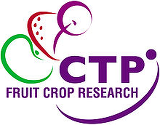REFERENCE: CTP_FCR_2021_6
Supervisors: Dr Andrew Simkin, Dr Mark Else (NIAB EMR); Prof Tracy Lawson (University of Essex)
This student will be registered with the University of Essex. Beginning in October 2021, the successful candidate should have (or expect to have) an Honours Degree (or equivalent) with a minimum of 2.1 in Plant Science, Biology, or other related science subjects.
Background
Numerous studies on the effects of CO2 enrichment in commercial greenhouses have shown that increased crop yields can be obtained through increased photosynthetic carbon assimilation. The uptake of CO2 for assimilation is controlled through small pores on the leaf surface known as stomata. Stomata are composed of a pair of specialized cells (guard cells) with an aperture between them and are located on the majority of the aerial parts of the plant but most prevalent on the (lower) leaf epidermis. Alteration in stomatal density (SD), in a number of species – including crops such as rice and barley, has been shown to increase photosynthesis by improving gas diffusion as well as improving water use efficiency. Increasing SD, therefore, has the potential to significantly enhance strawberry and blueberry yields and improve the consistency of berry quality.
Objectives and approaches
In this proposal, we aim to manipulate SD in strawberry and blueberry by altering the expression of epidermal patterning factors (EPFs), involved in stomatal density, through transgenic approaches and genome editing. The over-expressing of one EPF ‘stomagen’ in Arabidopsis resulted in a more than three-fold increase in SD, an increase in stomatal conductance under ambient CO2 and a 30% increase in photosynthetic rates.
The overall aim of this project is to: 1) produce new transgenic and genome-edited strawberry and blueberry lines with altered stomatal density; 2) identify strawberry and blueberry lines with increased photosynthesis, biomass and fruit yield; 3) analyse the impact on the flavour and aroma profiles of selected fruit.
Training
The successful candidate will gain a wide range of experience in plant physiology, plant genetics, genomics and biotechnology.
Application
Anyone interested should fill the online application form before the deadline of 8th February 2021. If need further help or clarification, please contact recruitmentctp@emr.ac.uk.
Contact Dr Andrew Simkin for an informal discussion on research contents.
